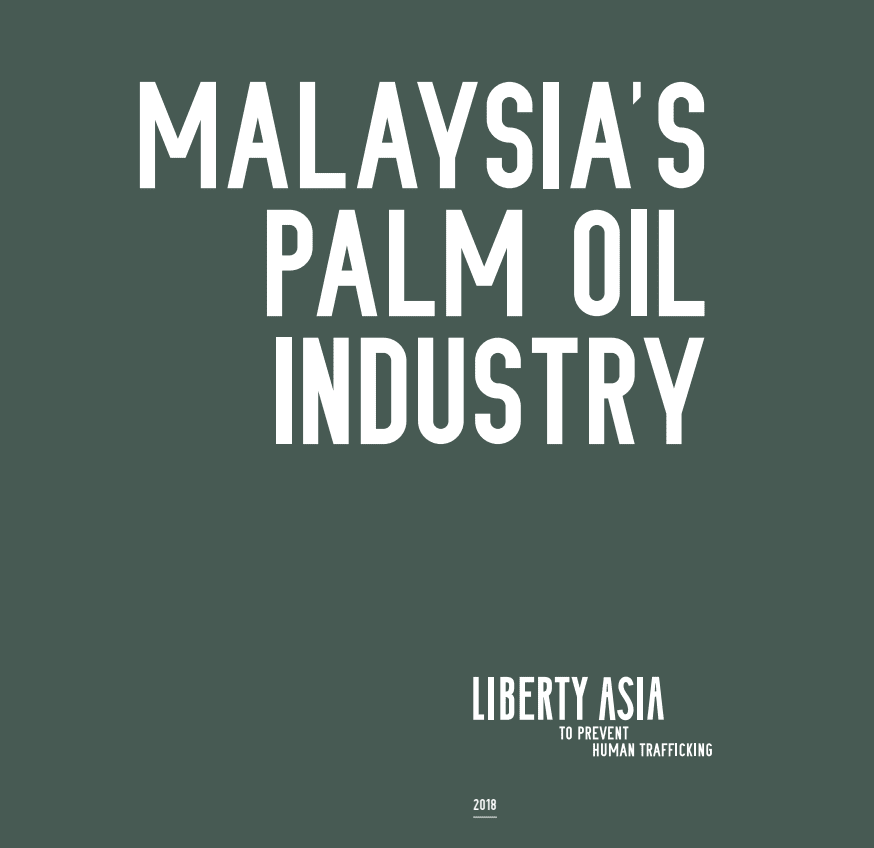
Malaysia’s Palm Oil Industry
Executive Summary
The palm oil industry has experienced significant growth and expansion during the past decades, becoming a key part of the Malaysian economy and one of the most important sources of jobs. However, with this growth has come widespread reports of human rights abuses related to consistent exposure of workers to hazardous chemicals, violent clashes over land disputes, salary structures designed to subvert the already meagre minimum wage requirements, and systematic exploitation of migrant workers.6
A key support driving the growth has been financial institutions, primarily from major Malaysian and American banks, which underwrite bonds and issue shares for plantations and other large companies that dominate the sector. Although some of these banks have taken steps towards reducing risks of social and environmental abuses, in general there is little reporting to their clients or shareholders about these risks, particularly with respect to palm oil, deforestation, and land disputes, and even when there are known violations those companies often continue to receive significant funding. This may be rooted in a lack of standardized criteria for environmental, social, and corporate governance (ESG) reporting, which also echoes some of the reportedly loose standards for the various product certifications, which have also been criticized for accountability and transparency issues. As a result, there is a disclosure gap and a growing perception that the checks and balances intended to regulate this industry are focused more on angling for markets where profits, not sustainability, are the top priority. The formulation of industry focused ESG criteria and the socialising of this concept will help to mainstream disclosure and reporting requirements hence promoting better transparency and accountability. Agreed upon social standards in particular would be very welcome in this industry where concerns over mistreatment of workers is common. Leading the list of concerns is worker health. Reports have consistently pointed to the lack of protective gear for employees and the use of hazardous chemicals, especially Paraquat, a herbicide that is banned in numerous countries around the world because of its dangerous side efects.7 Housing on the plantations often lacks electricity and running water, and access to basic healthcare or education for children of the workers can be limited. The compensation that the employees receive for living and working in this harsh environment has come under repeated criticism for not being a viable wage, even when legally required minimum wage limits are met and, in other circumstances, salary structures focus on per piece rates that allow for payment significantly below those minimum requirements.
Labour conditions for migrant workers, who make up the majority of the workforce on the plantations, are even more troubling. Deceptive recruitment strategies follow patterns seen in other problematic industries of false promises of high wages, significant initial debt to the labour brokers, unexpected demands by the brokers for transportation costs, lack of contracts and documentation, and forced smuggling.8 After arriving at the worksite, migrant workers often have passports and identification documents seized, and live in constant fear of arrest for immigration violations under a system with excessive penalties for even small or minor technical violations of immigration rules. There is a significant role for industry regulators and certification bodies to play in addressing key issues such as recruitment fees and confiscation of documents. Where migration of unskilled workers is encouraged to ensure that acute demands for unskilled labour are met, it is essential for business operators to be mindful of safeguards that currently exist in Malaysian law to protect vulnerable workers. Furthermore, where there are carefully formulated social standards set out by the RSPO or MSPO, it is essential that enforcement and monitoring of compliance with these standards evolves beyond a periodic audit. There is a compelling need for a more investigative and engaged approach to identifying and resolving social and governance issues.
Part of the major eforts to bring change to this area has been the build-up of a system of laws and regulations as well as certification standards. Despite many documented social issues in this industry, the lack of litigation that have been brought and decided under the legal system is an indication of its efectiveness, and certification standards, while making real improvements in the recent eforts, still lack tight controls, efective leverage, and a comprehensive approach to the entire supply chain. Times are changing and regulations in Europe, Australia, the US and elsewhere are increasingly focused on highlighting the need for companies to undertake human rights due diligence and to disclose publicly their eforts to address instances of slavery, human trafcking and forced labour in their supply chains.
As legislation continues to pressure companies to take an introspective look at their business relationships and suppliers, one can expect that this will create some momentum for buyers and retailers to use their leverage to drive better social standards and governance for their palm oil suppliers.
It is essential to invest some time and efort in understanding how the labour laws interact with industry regulations and anti-trafcking laws. Industry regulations that are divorced from protection regimes are only likely to foster conditions that give rise to exploitation and abuse of those Malaysia depends on for its palm oil success story.
Read more here.
